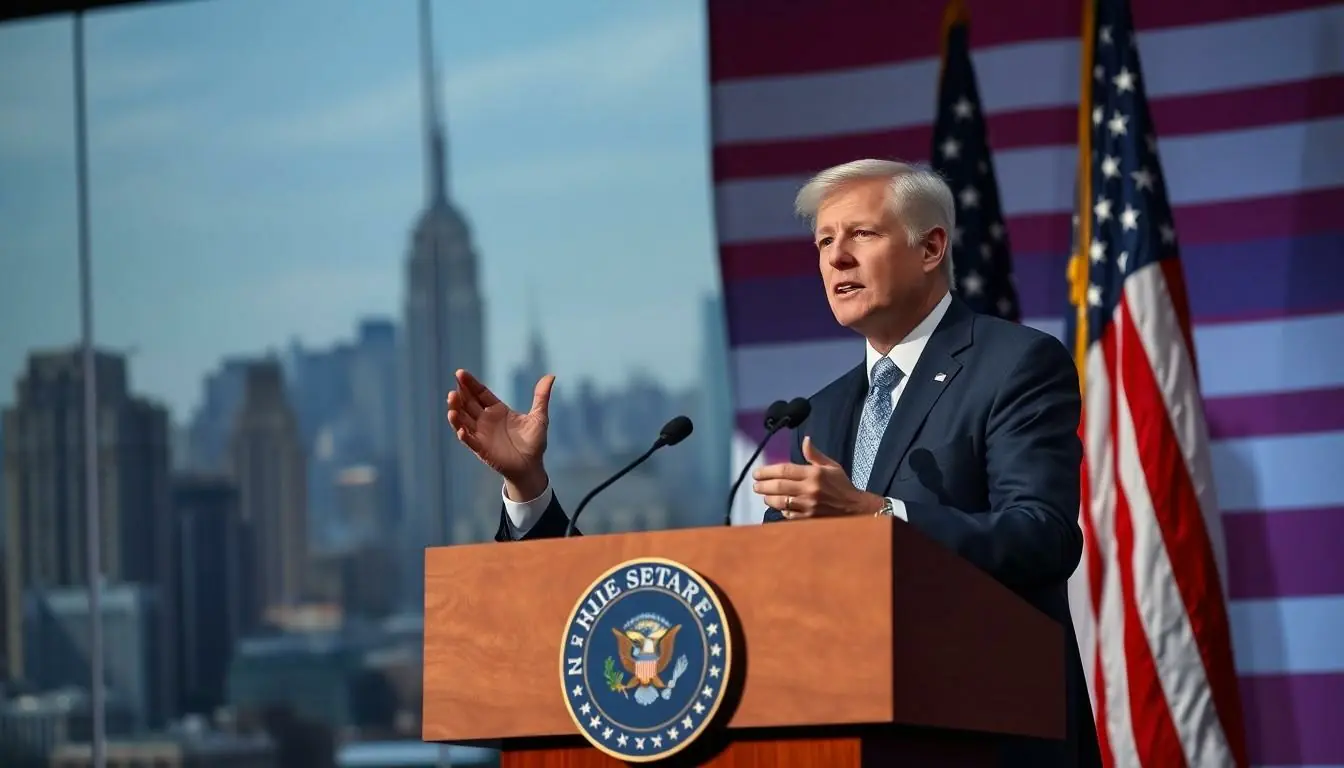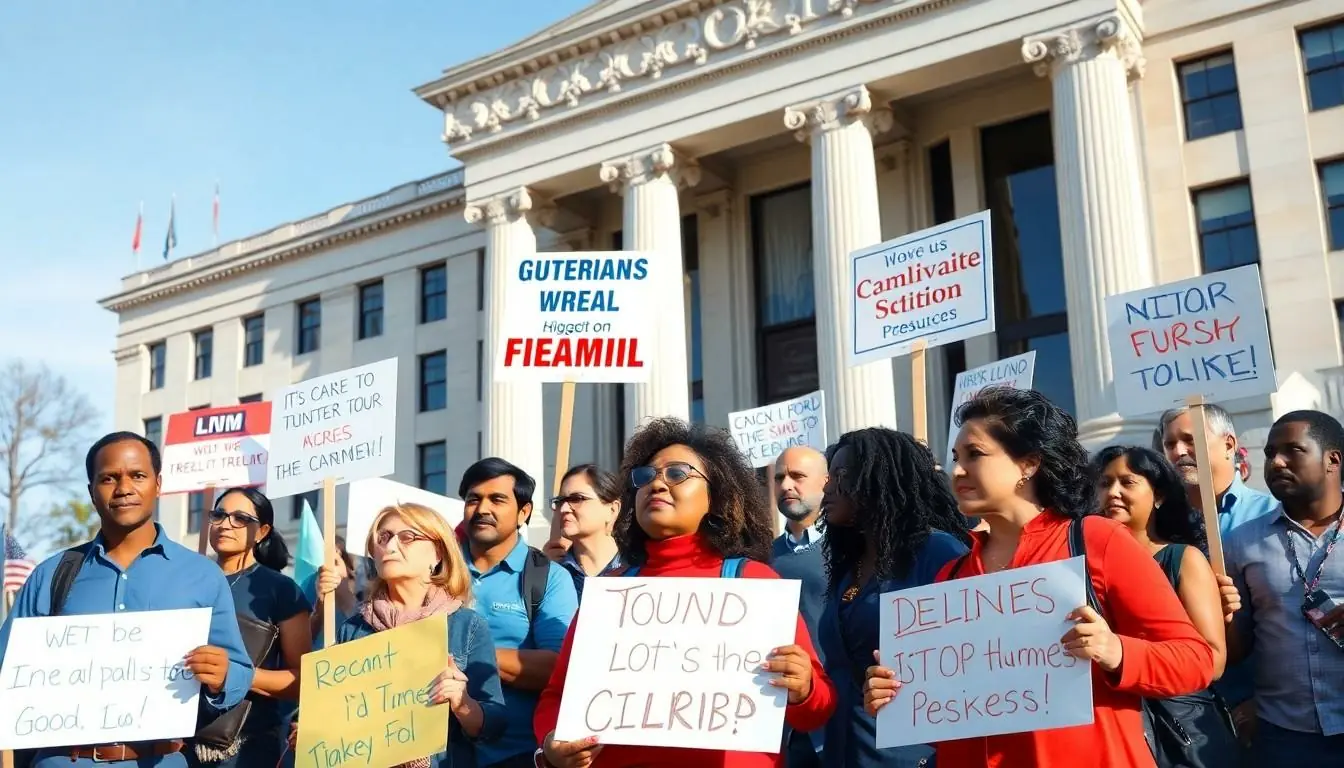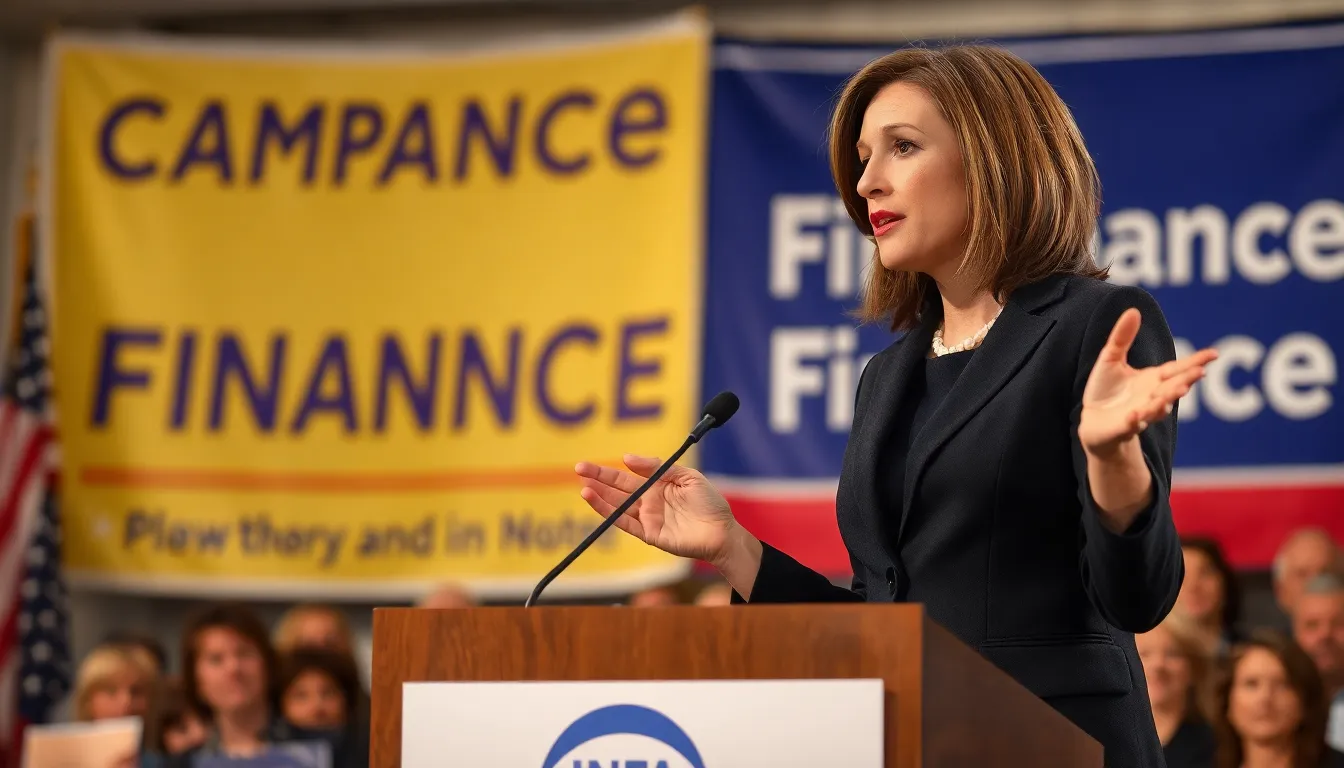Political decisions shape the world we live in, often leaving us scratching our heads or rolling our eyes. From the latest budget cuts to the controversial laws that seem to pop up overnight, it’s clear that these choices can spark heated debates and, let’s be honest, a fair share of memes. Navigating the maze of political decision-making might feel like trying to find a parking spot at a crowded mall during the holidays—frustrating but oh-so-important.
Table of Contents
ToggleOverview of Political Decisions
Political decisions shape society in profound ways. These choices impact governance, public funding, and law enforcement strategies. Recent budget cuts exemplify how financial decisions affect education, healthcare, and social services. Community members often express confusion and frustration regarding these shifts, leading to public outcry.
Debates arise over policies that seem to prioritize short-term gains over long-term health. Policymakers juggle numerous factors, including public opinion and economic trends. Current laws spark discussions on social equity, creating protest movements and online discourse. Political decisions aren’t just abstract concepts; they influence daily lives significantly.
Citizens often engage through multiple channels, including social media platforms. These interfaces allow individuals to voice opinions and mobilize for change. Local and national forums create spaces for discussion, yet polarized views complicate consensus-building. Citizens face the challenge of navigating complex narratives presented by politicians and media outlets.
Chaos sometimes ensues when decisions lead to unintended consequences. Historical examples illustrate this, with past budget cuts triggering widespread disruptions. Policymakers must analyze data carefully to avoid repeating these scenarios. Public trust hinges on transparency and accountability in decision-making processes.
Understanding the intricate web of political decision-making equips citizens to advocate more effectively for their needs. Engaging with local representatives fosters dialogue and promotes shared understanding. Ultimately, political decisions influence the fabric of society, shaping both immediate outcomes and future trajectories.
Factors Influencing Political Decisions

Political decisions stem from various factors that shape governance and public policy. Understanding these influences helps illuminate why certain choices resonate more with constituents.
Economic Considerations
Economic conditions significantly influence political decisions. Policymakers evaluate budget forecasts, employment rates, and inflation trends before proposing legislation. For instance, during economic downturns, leaders often prioritize job creation initiatives or social safety nets. These measures aim to address immediate economic challenges and seek long-term stability. Additionally, the performance of key industries like technology and manufacturing can shift political agendas. Stakeholders may push for incentives to attract investments or safeguard jobs, impacting decisions at local, state, and federal levels. The interplay of economics and governance continually shapes the political landscape.
Social Impact
Social dynamics play a critical role in guiding political decisions. Public opinion, driven by grassroots movements or advocacy groups, often sways policymakers. Advocacy for education, healthcare access, and equality issues can create pressure for change. Politicians frequently assess the social ramifications of their choices. For example, reforms in social services aim to improve lives and address disparities. Engaging with diverse community voices strengthens the decision-making process. Awareness of demographic shifts, cultural values, and social justice movements fosters responsive governance. Political leaders adapt strategies to meet the evolving needs of society.
International Relations
International relations dramatically affect political decision-making. Global events, alliances, and trade agreements shape national policies. Leaders weigh diplomatic relations alongside military cooperation and economic partnerships. For instance, responses to crises, like humanitarian efforts or trade wars, often reflect international priorities. Governments may adjust foreign policies based on geopolitical shifts, taking into account regional stability and security. This interconnectedness emphasizes the importance of understanding global influences on local politics. Effective strategies encompass both domestic needs and international obligations, impacting a nation’s standing on the world stage.
Types of Political Decisions
Political decisions encompass various types that significantly impact governance and society. Each type plays a distinct role in shaping laws and policies.
Legislative Actions
Legislative actions consist of laws and policies passed by elected representatives. These actions often address pressing societal issues, including healthcare and education. Policies formulated in legislative sessions influence public funding and priorities. State and federal legislatures hold sessions where numerous bills are debated and voted upon. The outcome of these legislative actions often reflects the political climate and public sentiment, resulting in either support or dissent.
Executive Orders
Executive orders empower the president or state governors to enact changes unilaterally. Decisions made through executive orders can address immediate issues without waiting for legislative approval. Examples include implementing temporary measures during emergencies or directing federal agencies to prioritize certain programs. Such orders often draw scrutiny, as they may circumvent traditional legislative processes. The implications of executive orders frequently spark debates about authority and governance, especially when they affect significant societal areas.
Judicial Rulings
Judicial rulings represent the decisions of courts that interpret laws and the Constitution. Through these rulings, judges can redefine the application of laws, often setting precedents for future cases. This process emphasizes the judiciary’s role in safeguarding rights and ensuring justice. Legal interpretations from federal and state courts influence legislative actions and executive decisions. The ramifications of judicial rulings resonate through society, affecting issues like civil rights and public policy.
Case Studies of Significant Political Decisions
These case studies illustrate the complexities and impacts of political decisions on society.
Landmark Legislation
Landmark legislation shapes the social and economic landscape of a nation. The Civil Rights Act of 1964 eliminated discrimination based on race, color, religion, sex, or national origin. This pivotal law signifies progress toward equality, influencing subsequent policies promoting civil rights. The Affordable Care Act enacted in 2010 transformed healthcare access for millions, aiming to reduce the uninsured rate drastically. Another significant example, the Voting Rights Act of 1965, aimed to eliminate barriers to voting, fostering greater participation in the democratic process. Each piece of legislation demonstrates the profound effects laws have on public welfare, often igniting debates about their implementation and consequences.
Controversial Executive Actions
Controversial executive actions often provoke significant public discourse. President Trump’s travel ban in 2017, aimed at restricting immigration from several Muslim-majority countries, sparked widespread protests and legal battles. The action raised concerns over religious discrimination and national security. President Biden’s executive order to cancel student debt also ignited debates regarding its economic implications and fairness. These decisions illustrate how executive actions can bypass traditional legislative processes, leading to swift changes that resonate deeply with citizens. Each action reflects the interplay between authority, public response, and the broader societal impact of political choices.
Political decisions play a crucial role in shaping society and influencing everyday lives. The complexities surrounding these choices often lead to confusion and frustration among the public. As citizens engage in discussions and debates through various platforms, their voices can drive change and hold leaders accountable.
The interplay of economic factors, social dynamics, and international relations further complicates the decision-making process. By understanding these elements, individuals can better navigate the political landscape and advocate for their needs. Ultimately, informed engagement fosters a more transparent and responsive governance system, paving the way for a healthier democratic process.



